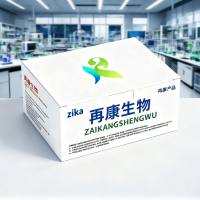Strategies to Adapt Adenoviral Vectors for Targeted Delivery
互联网
570
One of the challenges of current gene therapy vector development, concerns targeting a therapeutic gene to diseased cells with the aim of achieving sufficient gene expression in the affected tissue, while minimizing toxicity and expression in other tissues. The use of recombinant adenoviruses as vectors for gene therapy is restricted by the widespread distribution of the coxsackie and adenovirus receptor (CAR) (1 ,2 ), which allows infection of a range of tissues and precludes specific in vivo targeting. It is now well accepted that there is a dose-dependent toxicity associated with systemic delivery of adenoviral (Ad) vectors, in particular the risk of hepatotoxicity is a major concern (3 –6 ). Thus, development of Ad vectors that can target specific tissues following systemic or minimally invasive administration would enhance their therapeutic potential and expand their application. Targeting can be achieved at the level of capsid binding or at later transduction events by the use of tissue-specific promoters (7 –10 ). Targeting at the level of binding is preferred because even the interaction of cells with empty capsids leads to toxic effects (11 ), however a combination of both strategies has its obvious advantages.









